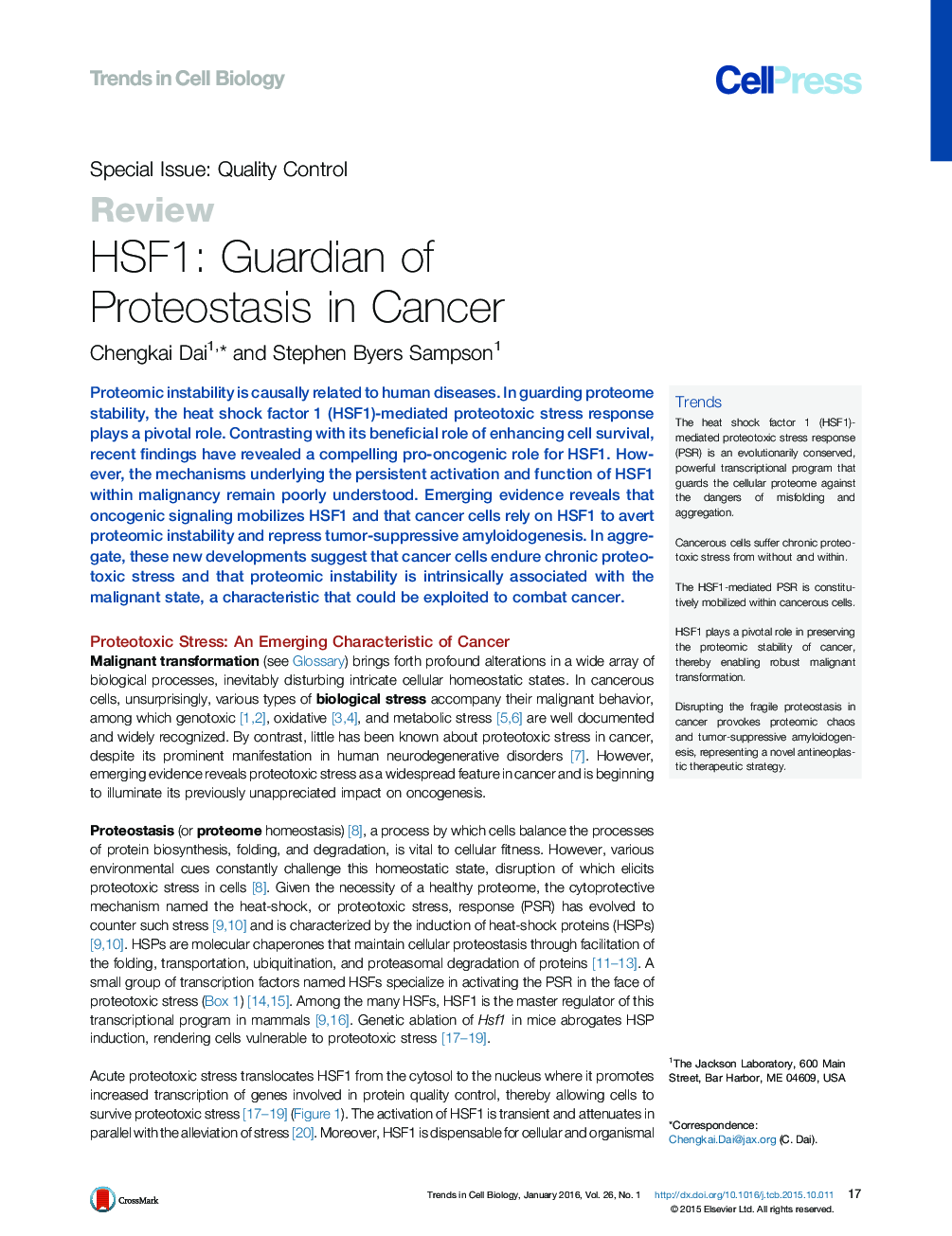| Article ID | Journal | Published Year | Pages | File Type |
|---|---|---|---|---|
| 2204326 | Trends in Cell Biology | 2016 | 12 Pages |
Proteomic instability is causally related to human diseases. In guarding proteome stability, the heat shock factor 1 (HSF1)-mediated proteotoxic stress response plays a pivotal role. Contrasting with its beneficial role of enhancing cell survival, recent findings have revealed a compelling pro-oncogenic role for HSF1. However, the mechanisms underlying the persistent activation and function of HSF1 within malignancy remain poorly understood. Emerging evidence reveals that oncogenic signaling mobilizes HSF1 and that cancer cells rely on HSF1 to avert proteomic instability and repress tumor-suppressive amyloidogenesis. In aggregate, these new developments suggest that cancer cells endure chronic proteotoxic stress and that proteomic instability is intrinsically associated with the malignant state, a characteristic that could be exploited to combat cancer.
TrendsThe heat shock factor 1 (HSF1)-mediated proteotoxic stress response (PSR) is an evolutionarily conserved, powerful transcriptional program that guards the cellular proteome against the dangers of misfolding and aggregation.Cancerous cells suffer chronic proteotoxic stress from without and within.The HSF1-mediated PSR is constitutively mobilized within cancerous cells.HSF1 plays a pivotal role in preserving the proteomic stability of cancer, thereby enabling robust malignant transformation.Disrupting the fragile proteostasis in cancer provokes proteomic chaos and tumor-suppressive amyloidogenesis, representing a novel antineoplastic therapeutic strategy.
